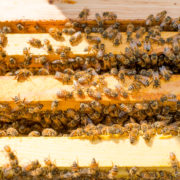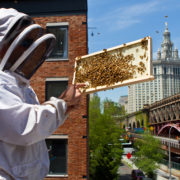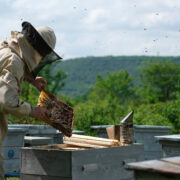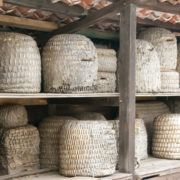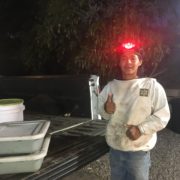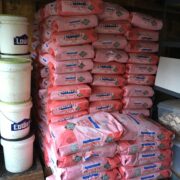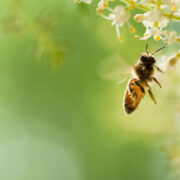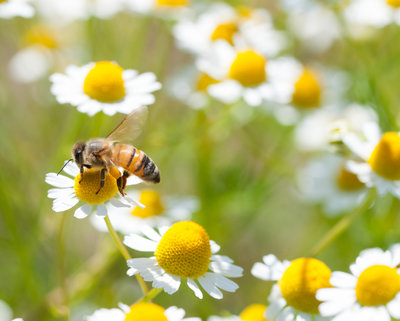The Future of Beekeeping
At last year’s California State Beekeeping Convention there was a scheduled panel discussion concerning the “Future of Beekeeping”. Most attendees anticipated a presentation covering the usual list of depressing topics in the world of beekeeping: Pesticides, dwindling natural forage, mites, viruses, high costs, etc. However, this conversation never happened. In fact, there was never any conversation at all. Due to extreme fire danger and the ferocious Santa Ana winds hammering the convention site, the local power company imposed a blackout. This effectively shut down the discussion and the convention.
So, what about the future of beekeeping? The underlying message of the shutdown could not have been more clear: The future of beekeeping – at least in California – no doubt includes fire and imposed blackouts.
Today as we post this entry, at least four major wildfires are still burning in California, all of them uncontained. Besides the loss of property and lives, these fires bring considerable collateral damage to beekeepers and their bees. We cannot think of a year in recent memory when California beekeepers – including several of our customers – have not lost a significant number of colonies due to fire.
Besides the actual burning of colonies, bees also perish in fires due to smoke inhalation. Bees, of course, can tolerate a certain amount of smoke, as any beekeeper using a smoker knows. However, it is the quality of smoke that can be especially damaging to bees. Smoke from a beekeeper’s smoker is a lot different than smoke from a burning house. Urban smoke contains chemicals from burnt plastic, PVC, carpeting, appliances, vehicles, as well as many other toxic sources. For example, in last year’s Paradise Fire, which destroyed the community of Paradise, CA, the smoke from the burning structures killed many nearby beehives, even though the actual fire never touched them.
Beekeepers themselves are also affected by this new reality of ongoing fire danger. We know of some commercial beekeepers who no longer use their smoker in fire-prone areas, and have switched to sprayers filled with liquid smoke or other essential oil mixtures and water. At Wildflower Meadows, when the fire danger becomes too high, we too put away our smokers and either work the bees without smoke, or sometimes even take the day off. On high-risk fire days, we instead focus our efforts on filling the water tubs in our yards to keep them from evaporating up in the dry Santa Ana winds.
The future of beekeeping, for the most part however, is largely beyond our control as individual beekeepers. When the power goes off, as it did last fall at the convention, another “future of beekeeping” also became clear. Beekeepers at the disrupted convention, instead of griping, got together for a modest lunch (sandwiches – no power) and instead spoke about some more pleasant topics; family, friends, time off, keeping bees, and various adventures. In this way, the future of beekeeping looked a lot like the present – beekeepers getting together, helping each other, not running from adversity, and doing the best they can . . . as always.



